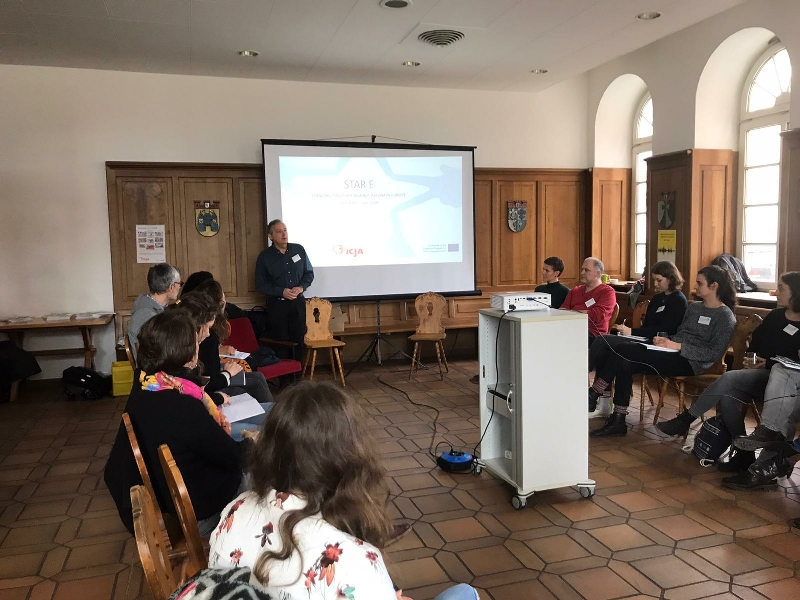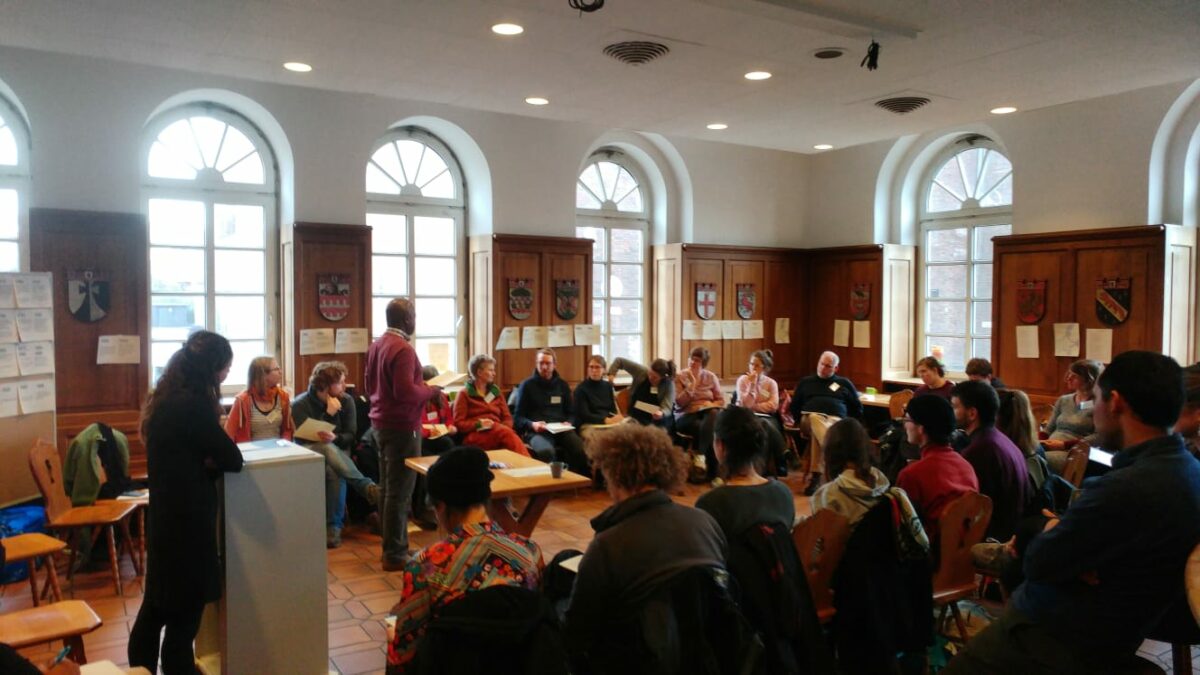On 12.03.2020 we organized the second STAR E multiplier event with workshop character and presented the publication “Managing Organisational Change – Tools and methods to become a diversity-sensitive NGO” to an interested expert audience. The expert audience consisted of different representatives* of NGOS, who are active in the area of youth, voluntary work, political education and organisational development. The event started with a lunch reception where the participants had the opportunity to get to know and talk to each other.
After a short introduction to the guests and team, Andreas Schwab, the international coordinator of the STAR E project introduced the Erasmus+ Key Action 2 Partnership project, its results and the experiences made since ugust 2017 as well as plans for the coming months. We then continued with a panel discussion. It was moderated by Martha Bienert and included professionals that have to do with diversity in different fields of work: Maria Gehre (Diversity Expert at VereinT Zukunft bilden e.V.), Stephan Langenberg (Managing Director ICJA volunteer exchange worldwide), Christian Baier (Managing Director of SOCIUS Organisationsentwicklung gmbH). The discussion focused on diversity and the use of the handbook from the perspective and practice of these organisations. Many participants stated that they were enthusiastic about developing their organisation into a more diversity sensitive organisation. They agreed with the experts and organizers that some of the methods of the handbook can be very helpful to stimulate the necessary reflection on the internal structures and management practices of organisations. They particularly liked the way the methods and tools are presented in the 2 handbooks and found it easy and convenient to work with them
After a short coffee break, which was also used to continue the dialogue on a personal level, Christian Baier presented the handbook “Managing Organisational Change Tools and methods to become a diversity-sensitive NGO” and went into more detail about the development, the structure of the publication and the different methods. This was followed by the practical application of the “Guerrilla Gardening” method, in which the participants first gathered ideas for a diversity-rich change for their own organisation in individual work. This was followed by an exchange of ideas in partner work. Finally, the participants had the opportunity to present their results voluntarily to the plenum.
There was a very positive feedback on the method “Guerilla gardening”. It helped participants to immediately feel part of the solution in making their organisations culture more diversity-oriented and -sensitive. Interesting ideas for change processes were generated and three participants even were encouraged to present their ideas in the final plenary session. Last but not least the organizers received positive feedback from the attendees: The event and workshop had enriched the participants as it contained theoretical input, a practical exercise and enough space for discussions and questions.
We would like to thank all participants for their active participation and express special thanks to Maria Gehre, Martha Bienert, Christian Baier and Stephan Langenberg for their interesting input and great moderation.

